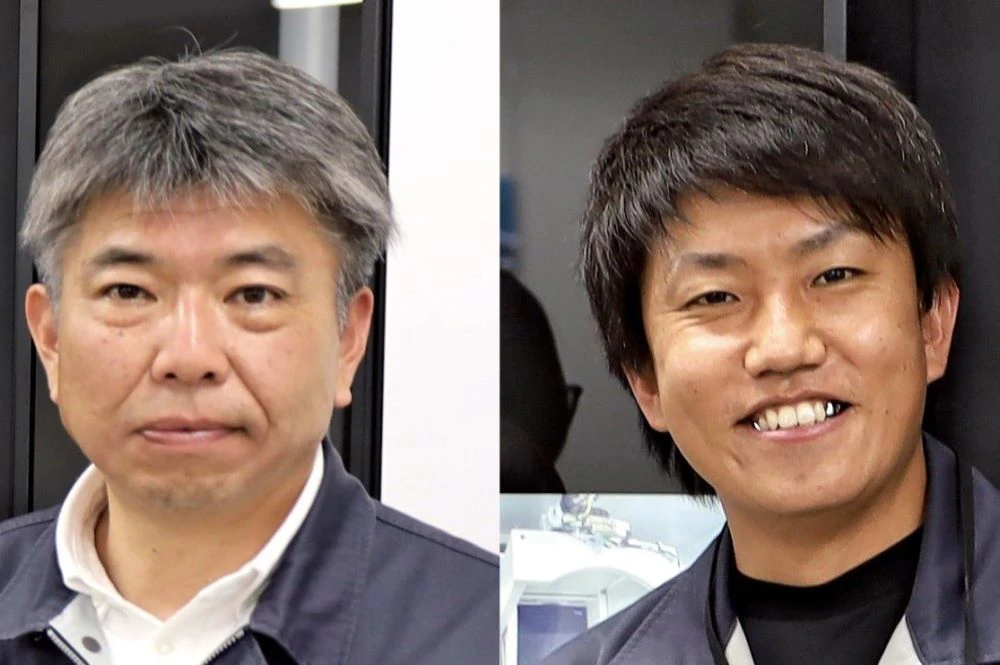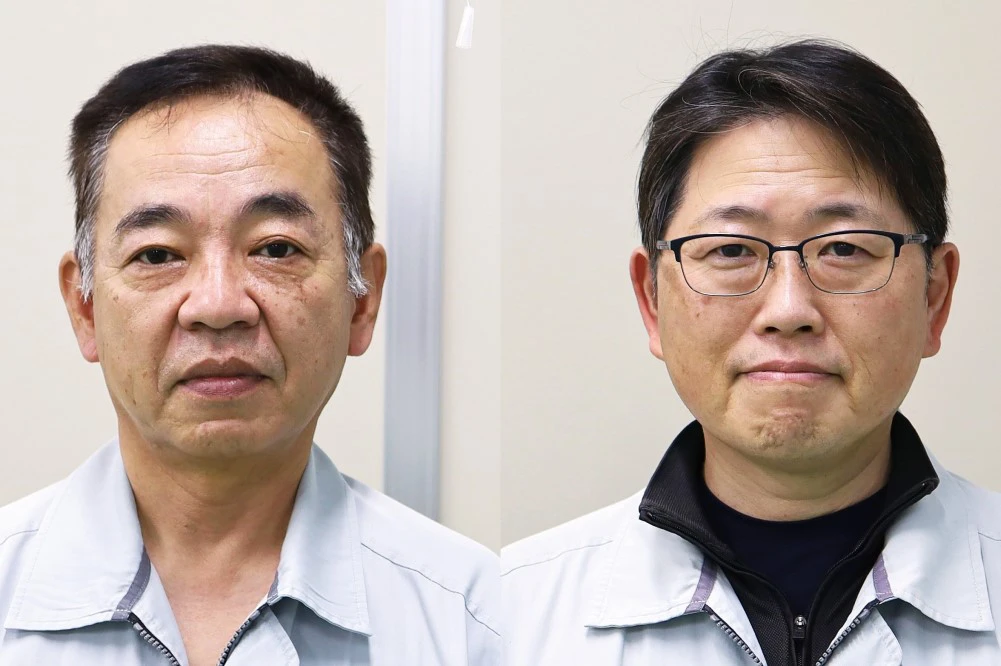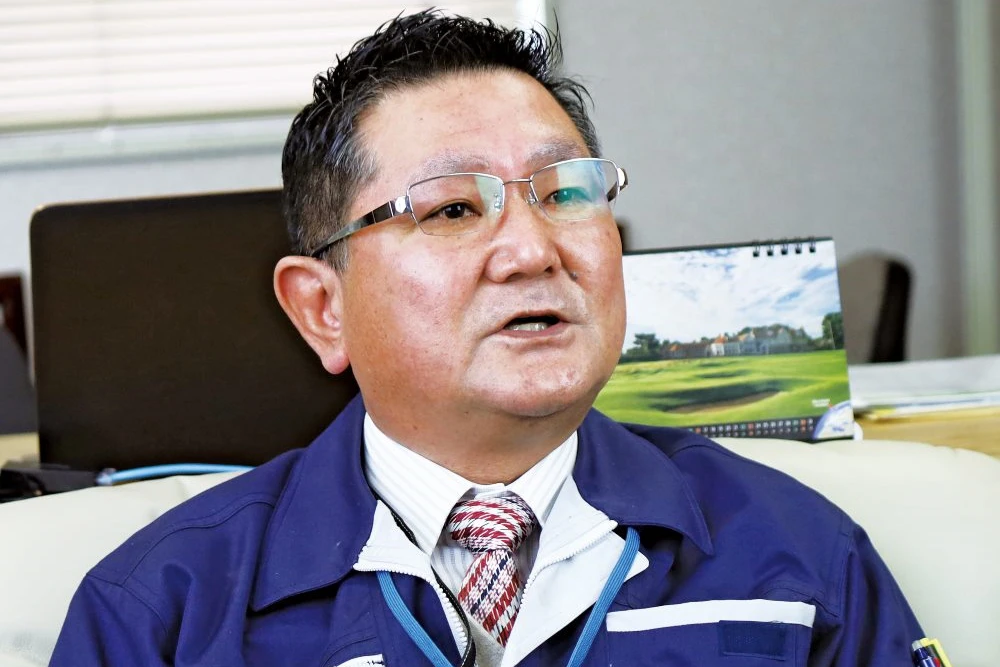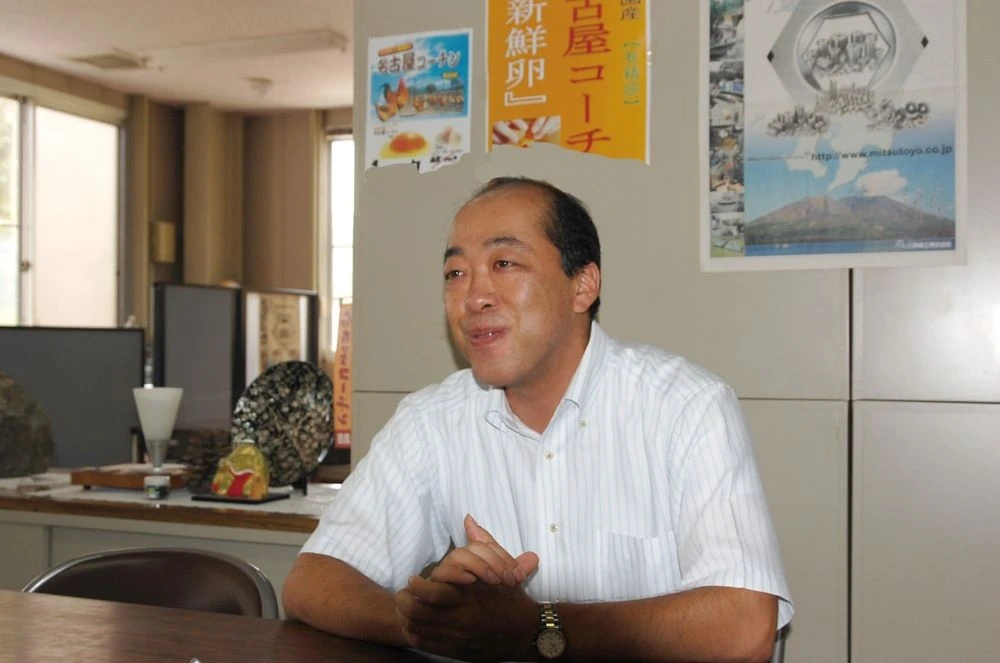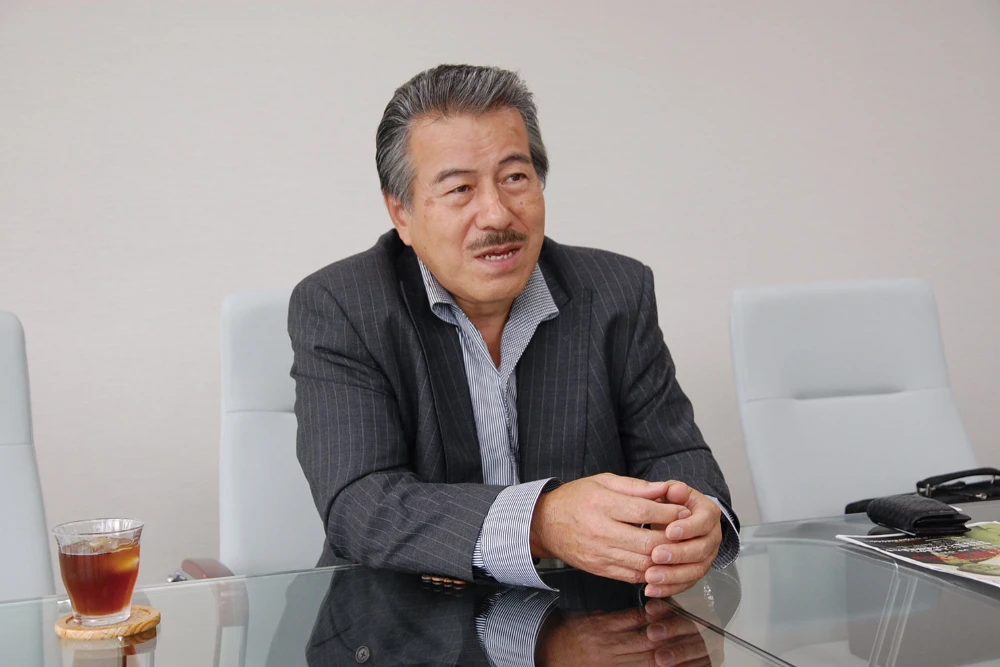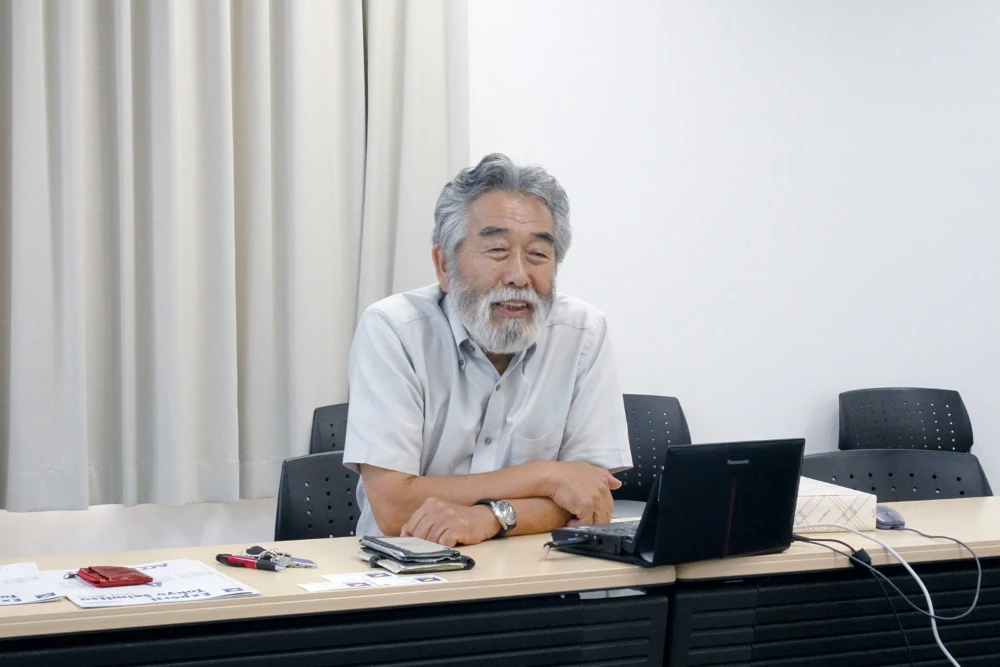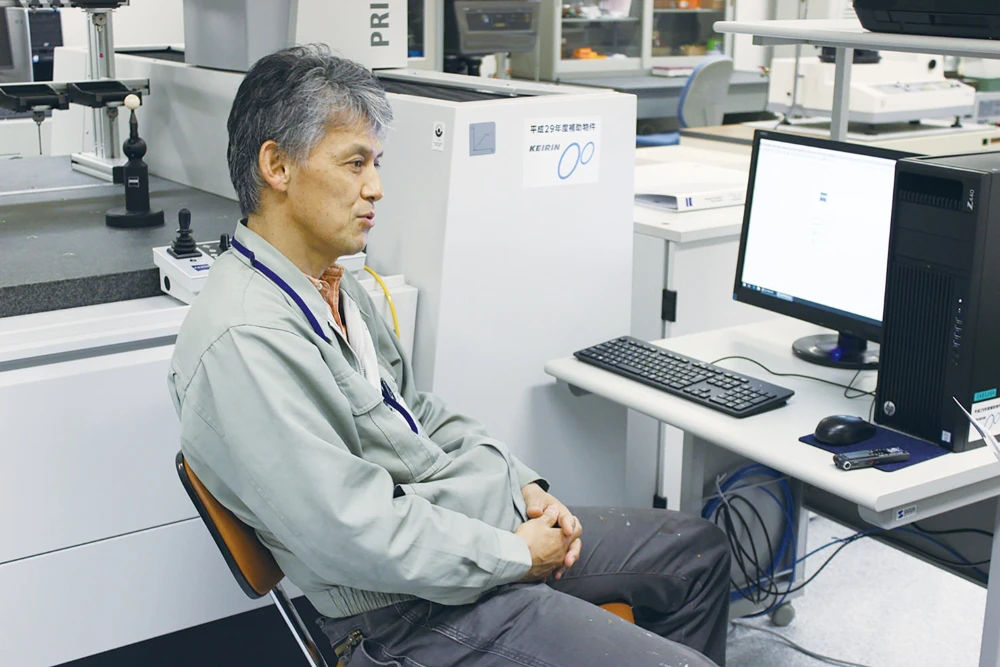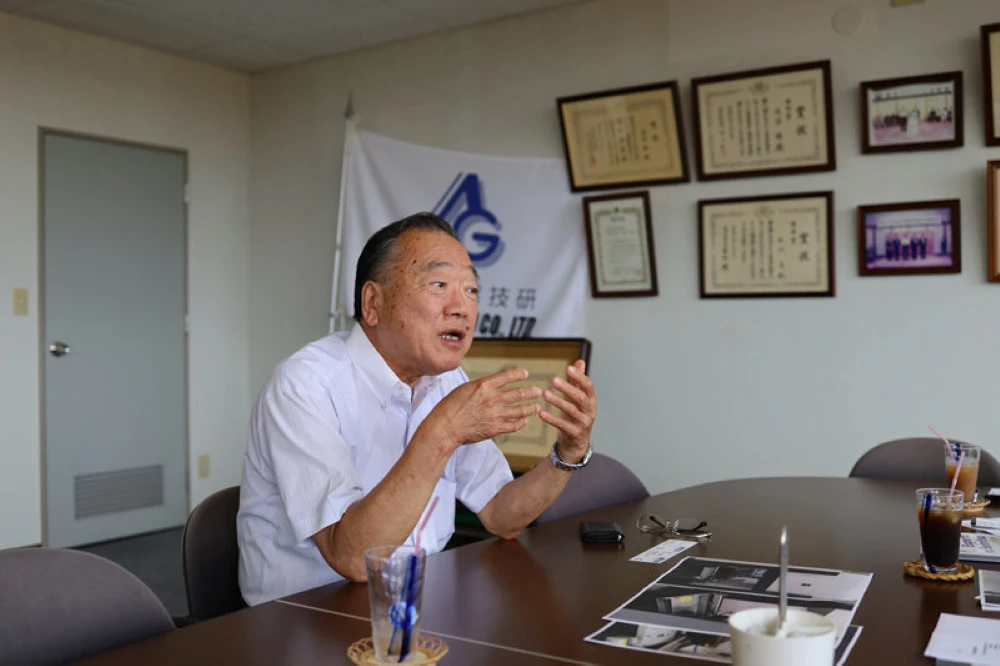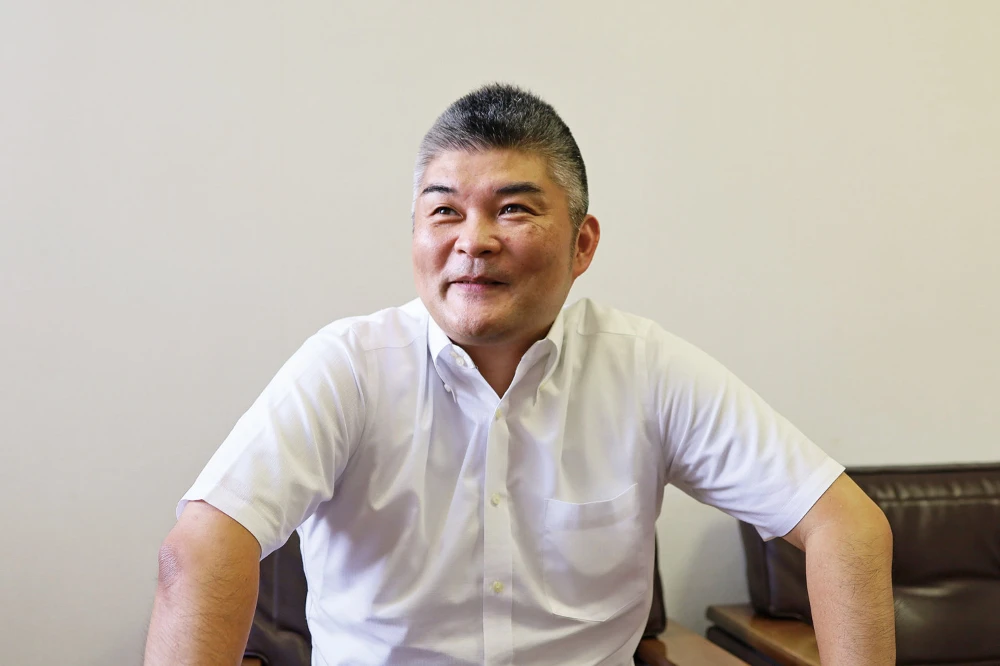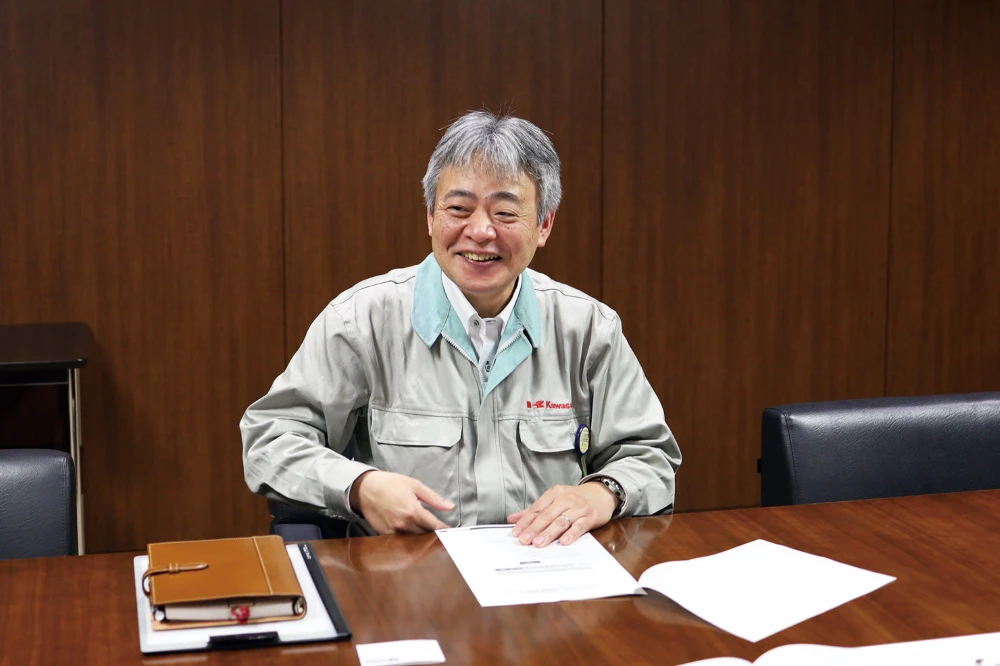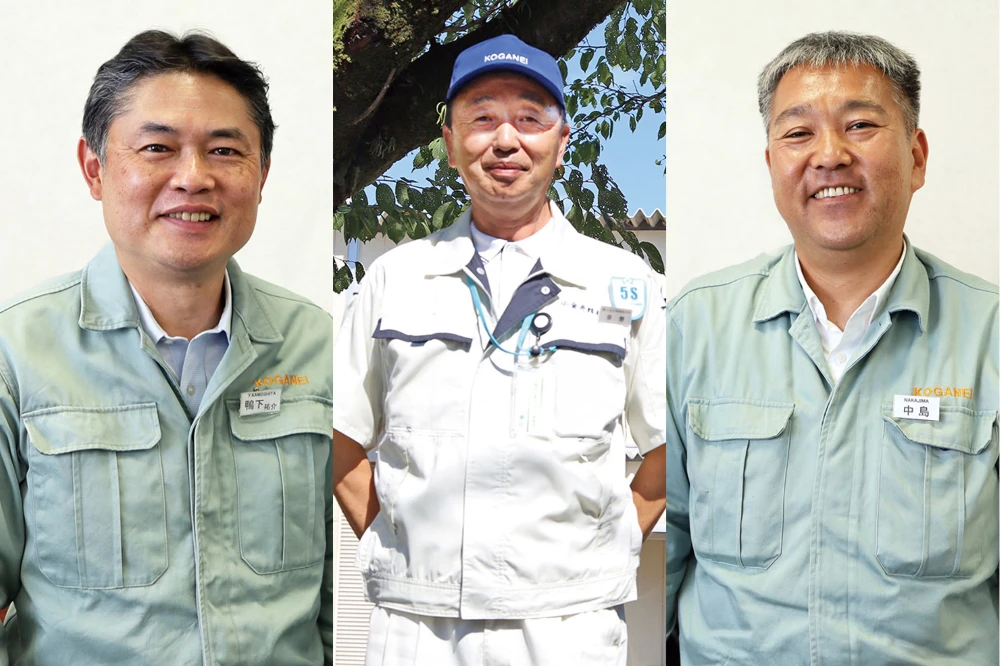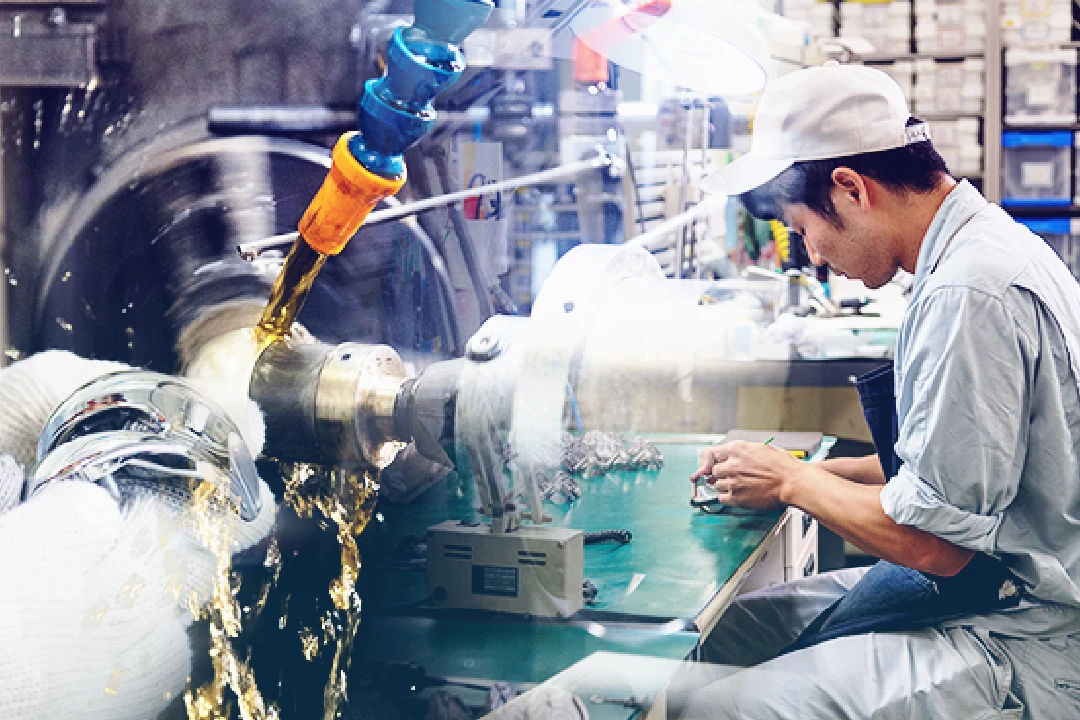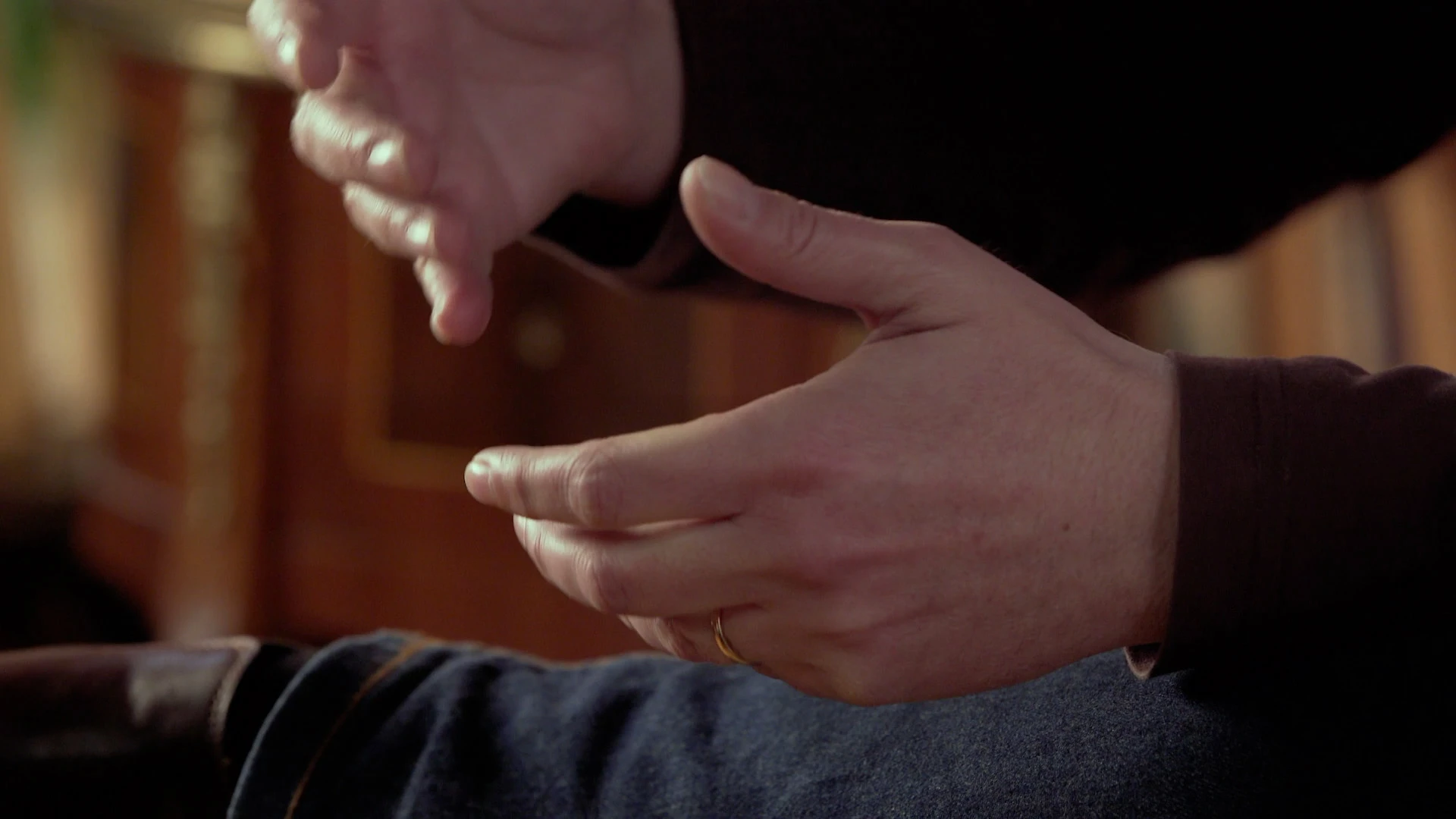
TANIDA is a casting and machining specialist for light metals and a manufacturer of transport equipment engine parts, semiconductor manufacturing equipment parts, and robot parts. We asked them to give us an overview of their business and what they value in their monozukuri.
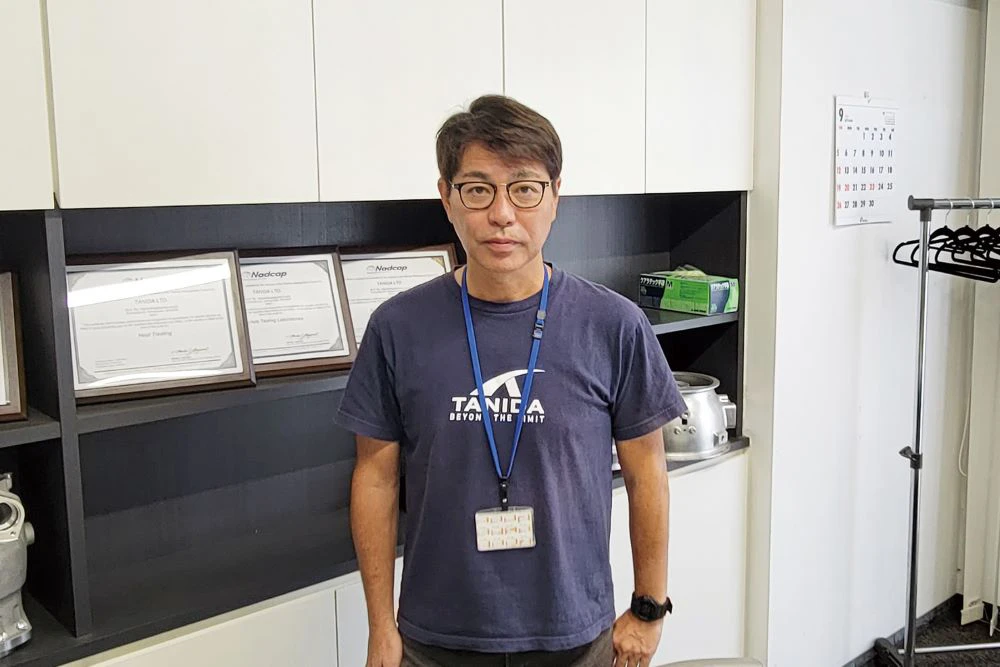
TANIDA Ltd.
President Koichi Komai
Since its founding in 1962 as the limited liability company TANIDA Copper Castings LTD, the company has tirelessly strived to pioneer new technologies in order to exceed conventional limitations of manufacturing, such as by obtaining various certifications and introducing 3D printers a step ahead of other industry players. In recent years, the company has entered and putting its efforts into the aerospace and defense industries, obtaining numerous special process accreditations and commencing trade with major overseas manufacturers by leveraging its 3D printer and proprietary differential pressure casting technology.
Head Office and Factory: 28-2 Ra, Higashi Kagatsume, Kanazawa, Ishikawa, Japan 920-0209
Please give us an overview of your business.

Our main business is casting and machining light alloys, and some examples of our products are transportation systems, semiconductor manufacturing equipment, and robot parts. Particularly as a company in the aerospace and defense industries, in recent years there have been many opportunities to expose our company to the media, and we have achieved a significant increase in related sales even amid the COVID-19 pandemic. Initially, our main business was casting, including machining, heat treatment, and surface treatment of castings, but in recent years we have also invested in engineering such as mechanical design, analysis evaluation, and alloy development as part of innovations in our business areas. Accordingly, we are also focusing on quality control such as with CMMs, X-ray inspection, and evaluation. In the future, we would like to further enhance the added value of engineering and evaluation demonstration. We changed our Japanese company name last year from Tanida Alloy Ltd to the present TANIDA LTD. This is because the word "alloy" in the company name gives a strong impression of a foundry. We changed our name to TANIDA LTD because we are not solely about castings or solely about machining, and hope to expand our businesses into a diverse range of fields.
What are your company’s strengths and characteristics?
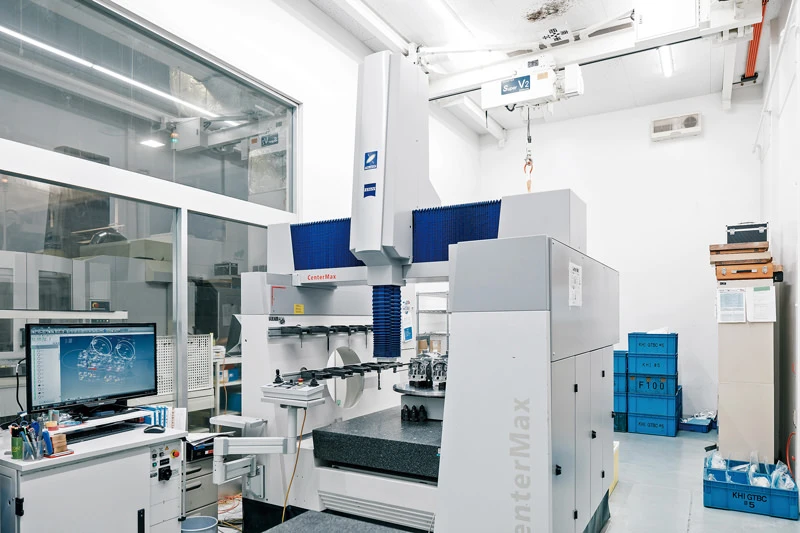
We are also focusing on investing in human resources as part of the business expansion plan I mentioned earlier. In addition to workers directly involved in manufacturing, we are focusing on increasing the number of casting engineers who can use CAE, CAD and CAM, as well as special process members, which are a very important group of experts for the aerospace industry. We also introduced 3D printers in 2008. The gearboxes in an aircraft engine are equipped with various components made from cast materials that have undergone precision processing. Being very complex, this processing cannot be achieved with molds and die castings, which Japan is skilled at. These components will likely continue to be made by sand casting and machining, and because it is a niche field, there is a high barrier to entry. However, by combining 3D printer technology with our proprietary differential pressure casting, we exceeded conventional limitations of manufacturing to achieve a practical casting method before any other company. We have also obtained international certification for all of the various special processes such as sand casting and welding. These certification examinations are very strict, and there are many certifications for inspection systems such as material testing and X-ray. For this reason we are heavily involved with ACCRETECH, and we hope that a continued relationship will help improve this field further. Leveraging our technologies and certifications, we deliver high-quality products that have earned such satisfaction from major overseas customers that we have entered direct contracts with them.
Could you elaborate on TANIDA’s corporate spirit of "Beyond the Limit"?
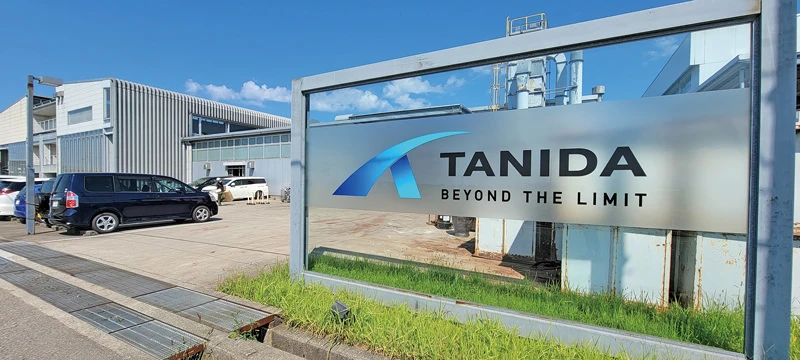
At TANIDA, we strongly promote “Beyond the Limit” as our company motto based on our determination to exceed the limits of manufacturing imposed by conventional processing methods. For this reason, we are conscious of not focusing solely on castings although it is our main business. While sand molds have not yet penetrated the aircraft parts field, we’re actually considering attempting to make such parts with resin. In order to exceed the limit even a little and advance further, we will look beyond casting and broaden our perspective to cover monozukuri as a the whole. We believe that is an important corporate mindset to have.
What businesses will TANIDA expand to moving forward?
We are actively increasing personnel from various countries with a view to expanding overseas. Our workplace is now quite international, but we want to recruit even more personnel. In the spring of 2022, we plan to establish a factory with a large number of cutting-edge equipment. The current plant has already introduced Center Max, PRISMO for 3D coordinate measurement, but for the new plant we plan to introduce two ACCURA large-size 3D CMMs. A rotary table embedded device is one of the measuring instruments we have wanted for many years, so we have very high hopes for them. In addition, we plan to introduce large CT scanning equipment and the latest large 3D printer, so we hope to manufacture even better products once the new factory is established.
Do you have any expectations of measuring instruments or ACCRETECH?
Moving forward, I think the focus should be more on how to interconnect machines with machines and factories with factories, rather than the accuracy and function of individual measuring instruments. Measuring instruments integrated into systems should be introduced to production lines and programs of various measuring instruments should be rolled into one. I hope to see these kind of innovative digital connections that we are currently pushing that can sync simulation, analysis, and the accompanying evaluation and measurements. In addition, I feel that a support system is extremely important when choosing equipment like measuring instruments. The more measuring machines stop in factories, the greater the impact on production. A certain machine tool manufacturer has an outstanding support system in place. If we contact them to say our equipment has broken down after lunch on one day, they will get it back up and running for us before lunch the next day. That kind of speedy response would be incredibly helpful. In recent years, online support has become commonplace, so in the near future, we hope that inquiries about small equipment defects and such might be handled remotely using AR technology.
Tokyo Seimitsu’s thoughts after speaking
"To look beyond casting to focus on monozukuri as a whole." True to these passionately spoken words, TANIDA keeps a watchful eye on a variety of fields, actively incorporating new things and always exceeding the limits of manufacturing. Through this interview, we strongly felt that TANIDA's great breakthrough in the aerospace and defense industry, which is said to have high barriers to entry, was due to its corporate stance of strong commitment and excellent ability to take action. ACCRETECH will continue exerting efforts such as in product development and strengthening of our support system so that we may further contribute to the ever-evolving TANIDA.

